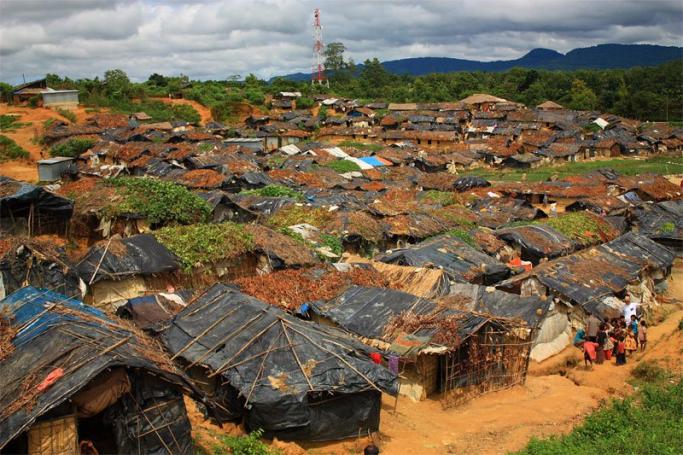The Asian Centre for Human Rights (ACHR) in a press release on 2 July stated that Pakistan’s draft resolution against Myanmar tabled at the United Nations Human Rights Council in Geneva yesterday contains factually incorrect information and does not include key issues relating to the Rohingya refugees.
The statement continues, the draft resolution (A/HRC/29/L.30 dated 1 July 2015) titled “Situation of human rights of Rohingya Muslims and other minorities in Myanmar” tabled on behalf of the Organization of Islamic Cooperation (OIC), among others, condemns the systematic gross violations of human rights and abuses committed in Rakhine State, in particular against Rohingya Muslims. It calls upon the Government of Myanmar to ensure the protection of human rights of the Rohingya Muslims, and requests “the United Nations High Commissioner for Human Rights to present an oral update to the Human Rights Council at its thirtieth session. It also calls for a report at its thirty-second session, on human rights violations and abuses against Rohingya Muslims and other minorities in Myanmar, particularly the recent incidents of trafficking and forced displacement of Rohingya Muslims.” The resolution will come up for voting on, today, 3 July 2015.
“The draft resolution of Pakistan in which one government from Asia tables a resolution at the UN against another government from Asia on the grounds of human rights violations is historic, it has never happened in the history of the UN but unfortunately it contains factually incorrect information. The resolution expressed “concern about the irregular migration in the Andaman Sea of Rohingya Muslims from Myanmar” only but the Bangladesh Foreign Ministry in a statement on 2 June 2015 confirmed that 716 migrants rescued from the Indian Ocean and sheltered at the camps in Malaysia alone in May 2015 were Bangladeshi nationals. This proves that the boats carrying the migrants in the Andaman Sea were either originating from Bangladesh or there are continuing infiltration from Bangladesh to Myanmar,” stated Mr Suhas Chakma, Director of the Asian Centre for Human Rights.
The resolution further fails to note that as per the United Nations High Commissioner for Refugees (UNHCR) as of September 2014, “. . . it (UNHCR) provides support to more than 32,000 registered refugees in two official camps at Nayapara and Kutupalong in the district of Cox’s Bazar” of Bangladesh but “is concerned about the protection of some 200,000 to 500,000 undocumented Myanmar Rohingya who have no legal status.” These 200,000 to 500,000 undocumented Rohingyas are easy prey to the traffickers and the registration of these undocumented Rohingya refugees is the responsibility of the UN and the Government of Bangladesh.
“Unless the resolution specifically refers to the responsibility of the United Nations through UNHCR and the Government of Bangladesh on these 500,000 undocumented Rohingya refugees in Bangladesh, the problems of trafficking cannot be resolved.” further asserted Mr Chakma.
The Asian Centre for Human Rights called upon Pakistan, the OIC and other members of the UN Human Rights Council to amend the resolution and include the situation of 200,000 to 500,000 Rohingya refugees in Bangladesh
You are viewing the old site.
Please update your bookmark to https://eng.mizzima.com.
Mizzima Weekly Magazine Issue...
14 December 2023
New UK Burma sanctions welcome...
13 December 2023
Spring Revolution Daily News f...
13 December 2023
Spring Revolution Daily News f...
12 December 2023
Spring Revolution Daily News f...
11 December 2023
Spring Revolution Daily News f...
08 December 2023
Spring Revolution Daily News f...
07 December 2023
Diaspora journalists increasin...
07 December 2023
Landslides kill 12 as monsoon batters refugee camps












